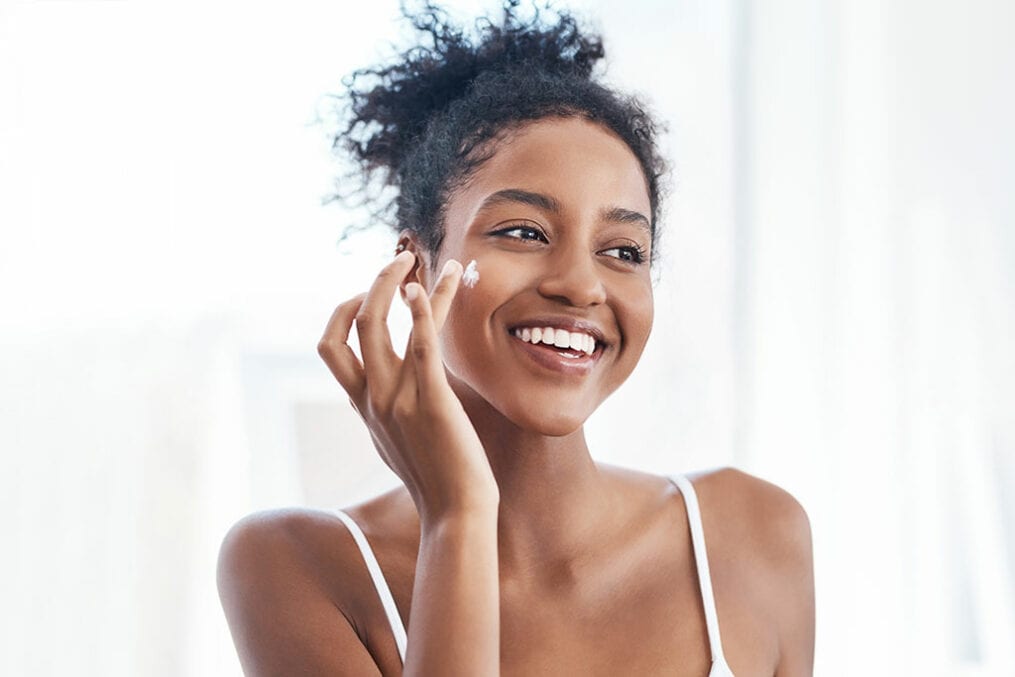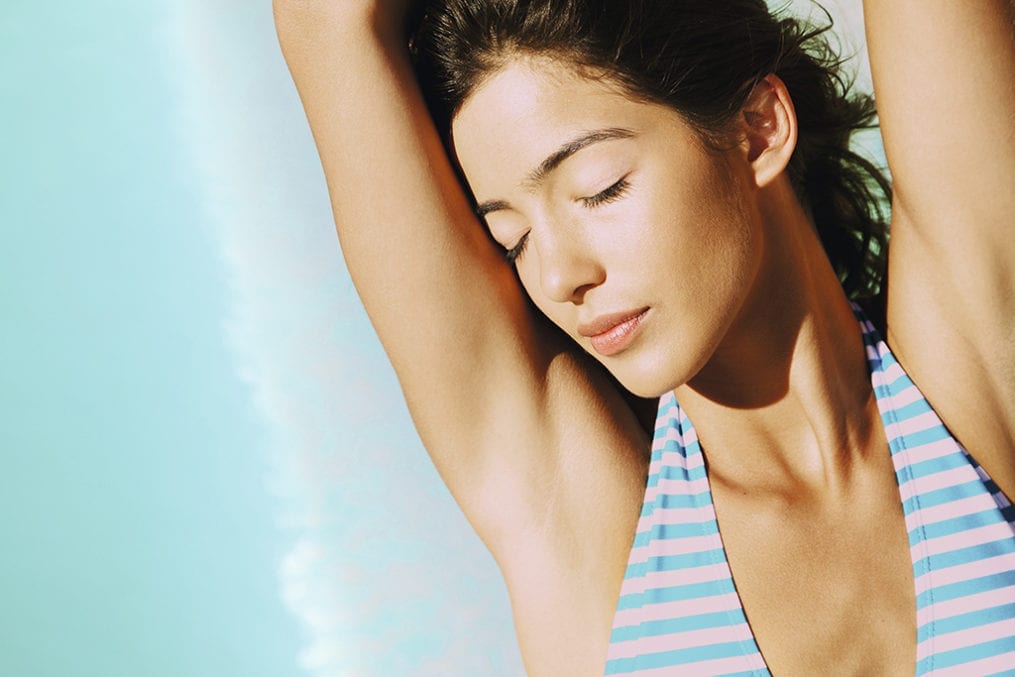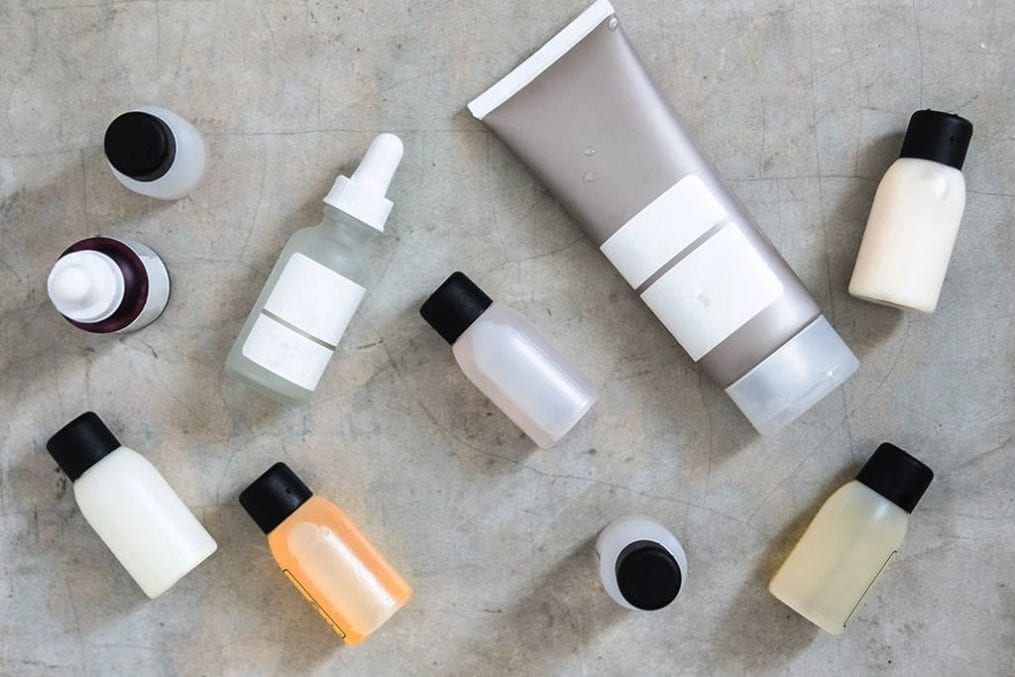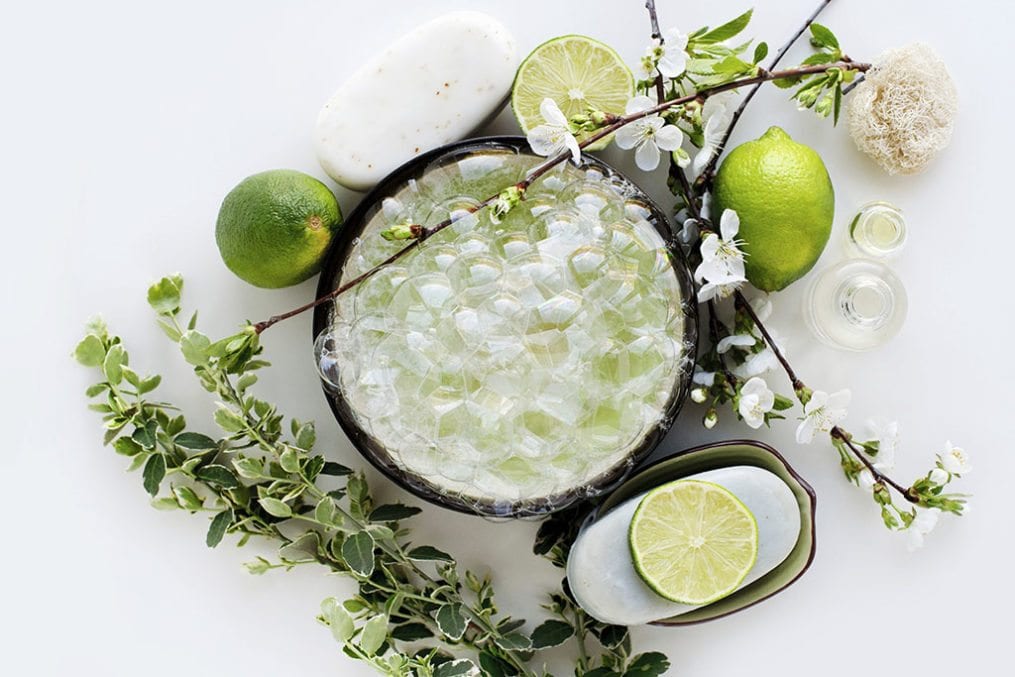How to embrace clean beauty
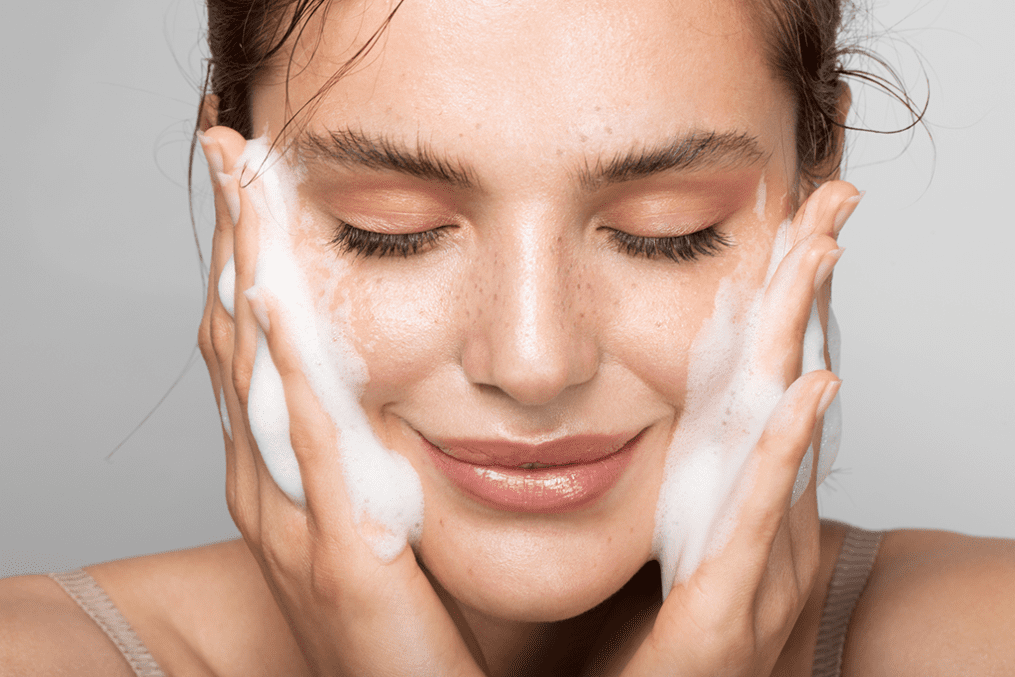
Historically, when we’ve tried to clean up our act, our self-improvement goals have revolved around diet and exercise. But, increasingly, we’re becoming aware of the chemicals that come into contact with our skin every day, via our beauty regimes. Now, 59% of women over 35 and 73% of 20-35-year-olds are seeking out more natural beauty products aimed at improving their overall health. So how can we make the shift towards a clean beauty routine?
Opting for toxin-free, cleaner beauty products is an act of self-care, rather than deprivation, meaning it’s more likely you’ll keep it up. But practical and manageable is the key to success when it comes to natural beauty – so don’t go throwing out your trusty favourite cosmetics just yet. ‘Think small changes that have a big impact,’ suggests Jo Chidley, chemist and founder of natural cosmetics company, Beauty Kitchen. ‘Start with one or two and build on them.’
Go natural
It’s an everyday skincare essential, but next time you stock up on deodorant, there’s one common ingredient you may want to address. Aluminium salts, a common component of antiperspirant deodorants, have been linked to breast cancer risk in some research, though other studies have found no link. Bear in mind that if you regularly shave before you put deodorant on, it increases aluminium absorption six-fold. If you’re concerned, experiment with an aluminium-free deodorant instead.
Say goodbye to sulphates
Look at everything from your hair care products to your toothpaste, and it’s likely sodium lauryl sulphate (SLS) and its cousin sodium laureth sulphate (SLES) will feature in the ingredients list. However, with several studies linking sulphates to skin irritations, it may be time to reconsider what you’re using. It’s not just your skin these common foaming agents can affect, but also the ocean, says Chidley, who doesn’t use sulphates in any of her products. For instance, a 2014 study found SLS depletes levels of tiny organisms in the ocean known as daphnia magna, which could affect fish that rely on them. But ditching sulphates doesn’t mean compromising on quality. ‘There are truly effective natural ingredients that do just as good a job, if not better,’ says Chidley.
Get UV protected
Year-round facial sunscreen is the most important thing you can use to look youthful. It reduces skin ageing by up to 24%, but you have to make sure it’s the right kind for your health, too.
Many chemical sunscreens contain ingredients like oxybenzone and avobenzone that react with UVA rays on your skin, a process with links to endocrine disruption (which is associated with some types of cancer) and conditions like endometriosis. They may also cause skin sensitivity, says research by the American Contact Dermatitis Society. For a safer alternative, use a physical sunscreen containing mineral ingredients such as zinc oxide or titanium dioxide. ‘The particle size isn’t small enough to be absorbed, so it creates a barrier between your skin and the elements,’ says Chidley.
Swap your hair dye
Six in 10 of us consider our grey roots a problem, but ammonia, a common ingredient in hair dye, can damage hair over time. ‘Changing the molecular structure of the cuticle using ammonia is almost impossible to reverse, and can cause permanent damage over time, with your hair’s cuticles becoming both brittle and dry,’ says Chidley.
For at-home dyeing which works with your new clean beauty routine, find a natural dye which is free from ammonia, diethanolamine (DEA), and other potentially toxic chemical compounds. Or visit an organic colouring salon like Karine Jackson Hair & Beauty Salon in Covent Garden, London.


